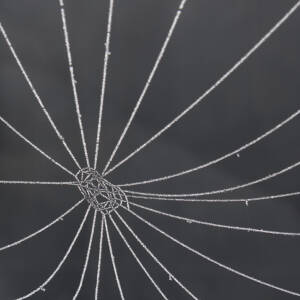Farewell
I went to a voice workshop this morning run by Emma Bonnici. I am used to physical warm-ups before singing but not ones that involve a lot of movement and energy and last 40 minutes. To my surprise I really enjoyed it.
There were only nine of us there, including Graham Topping who has written the fantastic programme notes for all the concerts. They are idiosyncratic, lively, extremely well informed and very well written. Very different from the stodgy history-based info that you get in most programmes. He very clearly knows how to encourage people to listen. I've watched him cringe each time he's been praised for them but I couldn't help adding my praise during the round of introductions. He didn't cringe quite so acutely as previously.
Yesterday, I mentioned the personal touch of this festival. I have a festival pass so am allowed into concerts first to access the unallocated seating. My mum has only tickets to certain concerts so isn't allowed in early. When we've been together she's been allowed to come in with me but today she got to the lunchtime concert before me, was recognised and was let in so she could sit down. Is this not a kind group of friends?
This was a fascinating concert, starting with a version of Handel's phenomenally popular Water Music, this time scored for a chamber ensemble that came from an 18th-century manuscript found at Christ Church. As far as I remember, the very first piece of classical music I ever played was a transcription for recorder of the Hornpipe from the Water Music - it's a piece I have known almost all my life.
Then a recent piece by Jennifer Walshe, called That's a lot of money at the top of a rocket, written for cellist, Natalie Clein, who introduced and performed it. It was inspired when Walshe was watching a documentary about an astronaut repairing something intricate, and imagining the astronaut's inner monologue when the slightest thing wrong can cause death. 'It reminded Walshe of playing Bach.'!! Natalie Clein astonished me by saying that musicians have an inner monologue, not necessarily related to the music, when they are playing. It made me feel a lot less guilty about the meanderings of my mind while I am listening to music.
Radiance by Deborah Pritchard, who has synaesthesia, was inspired by Marc Chagall's stained glass peace window at the UN headquarters. As I listened I closed my eyes and tried to see the window but I failed. I think synaesthesia would be a glorious affliction.
This evening's concert underlined what a spontaneous party this is. The programme was changed because the composer, Thomas Adès, decided to turn up, so everyone agreed that an arrangement for viola ('the most secretive of all instruments and the one closest to the human voice') from his opera, Exterminating Angel, should be added to the programme. Also, the musicians had been chatting backstage and lamenting how little Irish music there's been in the festival. It turned out that both the violist and the cellist had been separately working on versions of Irish folk songs, so they were also added to the programme. As was Wild Mountain Thyme (Will ye go, lassie go) sung by Emma Bonnici from this morning's workshop. For me, the main characteristic of this festival has been the almost-but-not-quite-silence of music, and enough of the audience were thinking, 'Will ye go, Lassie go' underneath their breath for Emma to bring us all into the choruses. Magic.
The changes to the programme meant that Elgar's Largehtto from Serenade for Strings had to be edged out, which was a disappointment for me as I've been trying this week to find out how to appreciate Elgar, but during the interval I chatted with Graham Topping who kindly suggested where I start, so I shall.
I knew the final piece of the festival would be Peter Maxwell Davies's Farewell to Stromness. Intermittently over the last few months I've been trying to learn it on the piano and it is difficult, so I was looking forward to hearing professionals play it. I was absolutely not expecting it to start with the perfect not-quite-silence of the double bass and clarinet and I started to dissolve. Then, as all the musicians played it exquisitely, I dissolved a bit more. Then one of the violists moved off the stage and, still playing, slowly walked out of the hall. Then a violinist. The lights dimmed. One by one, the musicians left, playing quieter. And quieter. And...
Farewell. Farewell. Fare well.
You missed it...
Next year, 22-27 September.

Comments
Sign in or get an account to comment.


